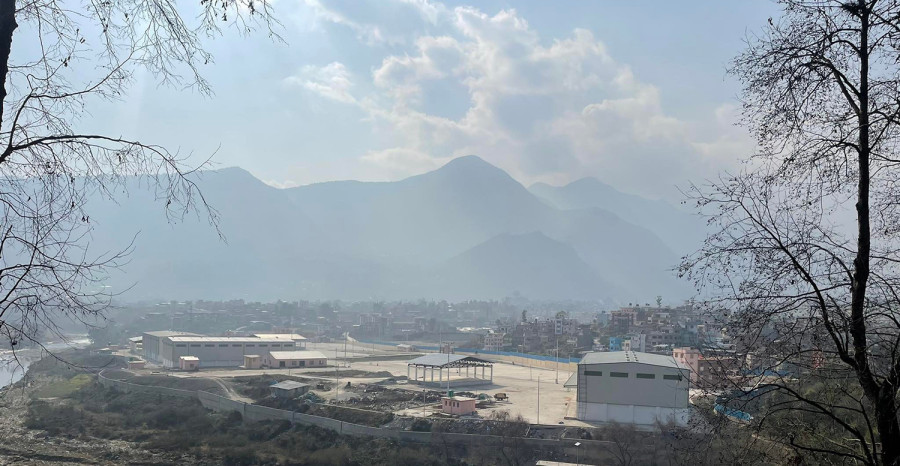Money
Government ropes in private sector to operate Chobhar dry port
TransNepal Freight Services wins contract to operate the dry port for five years under a private-public partnership model.
Post Report
TransNepal Freight Services has won the contract to operate the Chobhar dry port for five years under a private-public partnership model.
The Nepal Intermodal Transport Development Board, which oversees the management of Inland Clearance Depots (ICDs) for the facilitation of Nepal's trade, said it would sign an agreement with the company soon.
The board, which currently has been operating the dry port, will act as a regulatory body.
The date for signing the contract, however, has not been fixed.
According to the board, two companies—TransNepal Freight Services JV, Biratnagar and New Nepal Dhuwani Sewa, Birgunj—had participated in the bidding process.
TransNepal Freight Service quoted a minimum lease amount of Rs28.8 million.
In July, the board published a notice inviting potential bidders to operate the dry port located in the southwestern corner of Kathmandu Valley. It is spread over 11.77 hectares.
The dry port was inaugurated on April 5 last year by the then prime minister, Sher Bahadur Deuba.
TransNepal Freight Services was incorporated in 2002 under the Nepal Company Act and started operation in April 2002.
The company has also been operating two inland container depots at Biratnagar and Bhairahawa for a period of ten years. The lease agreements for both Biratnagar and Bhairahawa inland container depots were renewed for another ten years, until April 2022.
According to the Department of Customs, imports totalled Rs389.61 million in the first four months of the current fiscal year ended mid-November from the Chobhar customs, up 148.34 percent compared to the same period in the last fiscal year.
No export activities were performed by the Chobhar customs in the review period.
Imports from the dry port amounted to Rs642.30 million in the last fiscal year while exports accounted for Rs14.42 million.
The board said that the commercial use of the Chobhar Dry Port, which has completed 20 months of operation, has been increasing.
Ashish Gajurel, executive director of Nepal Intermodal Transport Development Board, said that trade activities from the dry port would increase after the Kathmandu-Terai Expressway comes into operation.
Gajurel said that the newly appointed private company would look after the management and operation of the facility.
The dry port or inland clearance depot allows importers to make customs clearance of their goods in Kathmandu itself, saving them trips to the various border checkpoints from where their shipments enter Nepal.
The foundation for the dry port was laid on January 18, 2019. It was constructed at a cost of Rs1.54 billion through a loan from the World Bank.
There is a 35,000-square-foot parking area, which can accommodate 500 containers and 500 trucks. The dry port is divided into two sections—export-import and domestic.
The export-import section can accommodate 116 twenty-foot equivalent units (TEUs), an inexact unit of cargo capacity often used for container ships.
Currently, out of the seven dry ports in the country, six are operated and managed by the private sector, according to the board.
Meanwhile, Nepal’s imports dropped by 3.79 percent to Rs512.50 billion in the first four months of the current fiscal year, the Department of Customs statistics shows.
Traders say that import contractions during the key festive season are a worrying sign. In the same period last fiscal year, imports were Rs532.69 billion.
According to the department, exports, too, have dropped. Nepal’s exports fell by 7.68 percent to Rs50.56 billion in the review period.
The country’s trade deficit stood at Rs461.93 billion in the review period. The share of imports in Nepal's total trade stood at 91 percent.




 14.24°C Kathmandu
14.24°C Kathmandu














